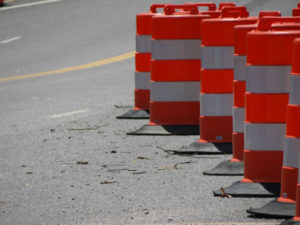The Division of Local Government Services and the Division of Codes and Standards recently issued a Local Finance Notice (Notice) reminding municipalities about the construction code fee limitations established under state law and how construction code enforcement offices must budget and account for such fees. They issued the Notice after becoming aware of “instances where municipal construction code enforcement offices are consistently earning revenue well in excess of the offices’ operating costs.”

Permissible Construction Code Fees
Under N.J.S.A. 52:27D-126a, municipal fees for plan review, certificates of occupancy and issuance of construction, demolition, moving of building, elevator, and sign permits are limited to the level necessary to satisfy the enforcement agency’s annual operating costs. Regulations enacted by the Department of Community Affairs (DCA) (N.J.A.C. 5:23-4.17 and 4.18) further dictate that the fee schedule set by municipal ordinance must be calculated to reasonably cover the municipal costs of enforcing the regulations, and must be reviewed against the revenues and expenditures listed in the Uniform Construction Code Annual Report along with the accompanying recommendation from the construction code official on whether changes to the fee schedule are necessary. The regulations also define what costs can be utilized in calculating construction code enforcement fees.
As highlighted in the Local Finance Notice, indirect and overhead expenses charged to construction code fee revenues may not exceed 12 percent of all other costs of the enforcing agency, unless the indirect and overhead expenses of the municipality exceed 12 percent of the entire municipal budget. In such cases, indirect and overhead expense may be charged to the construction fee revenues in proportion to the general municipal overhead and expense ratio. A detailed written justification for any charge for indirect and overhead expenses in excess of 12 percent must be prepared and made available for inspection both by the DCA and by the public.
When construction code enforcement is provided under a shared services agreement, one uniform fee schedule must be applied by all parties to the agreement. The enforcing agency performing the administration and enforcement of the regulations must collect the fees, with no additional fee required to be paid by an applicant to any municipality or county. In situations where private on-site inspection and plan review agencies carry out some or all of the enforcement responsibilities of the local code enforcement agency, the fees can’t exceed the contracted amount the municipality must pay the third-party vendor(s) except to cover additional overhead and other operational costs incurred by the municipality in connection with the administration of code enforcement activities.
Construction Code Fee Revenues
As detailed in the Notice, municipalities have two options on how to dedicate any revenues earned from the construction code fees. The first method is to state fee revenues in a separate section of the budget according to their respective sources together with the appropriations for the purposes to which such revenues are applicable; with the total of anticipated revenues equaling the total of appropriations. Under this method, current year revenue cannot exceed prior year realized revenue absent documentation supporting the disparity (e.g. amended ordinance to increase fees, substantial increase in the number of inspections). The second method is to utilize a “dedication by rider” (i.e. a trust fund) pursuant to N.J.S.A. 40A:4-39. This option allows the municipality to accumulate funds at a reasonable level for offsetting future code enforcement expenses.
Pursuant to N.J.A.C. 5:23-4.17, the appropriation and expenditure of construction code fee revenues must be tested annually as part of the municipal audit. A separate dedicated report must be included with the annual audit. CFO’s are required to provide their auditors with all information necessary to complete the report. DCA will be providing guidance on how the report is to be incorporated into the upcoming electronic audit submission process (the FAST system). By no later than March 1 each year (September 1 for state fiscal year municipalities), the DCA will notify a municipality whether they are required to perform further sample testing of the supporting expenditures for all direct and indirect expenses allocated to the Construction Department.
For more information about the Local Finance Notice on construction code fees or the legal issues involved, we encourage you to contact a member of Scarinci Hollenbeck’s Government Law Group.
